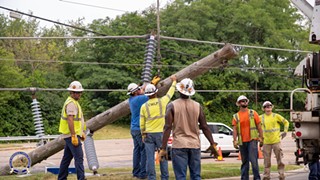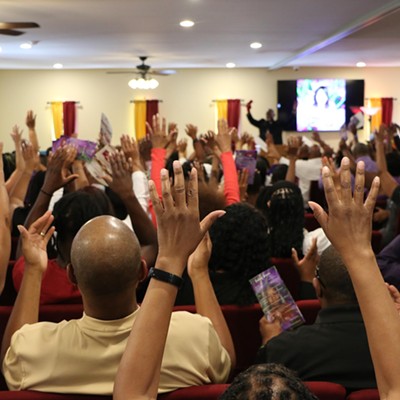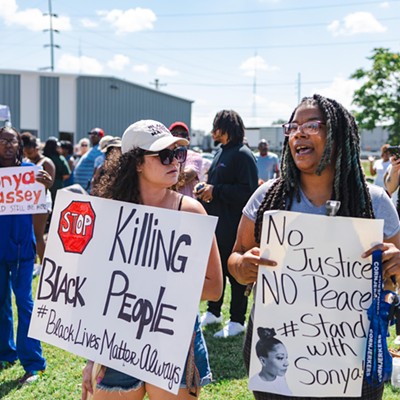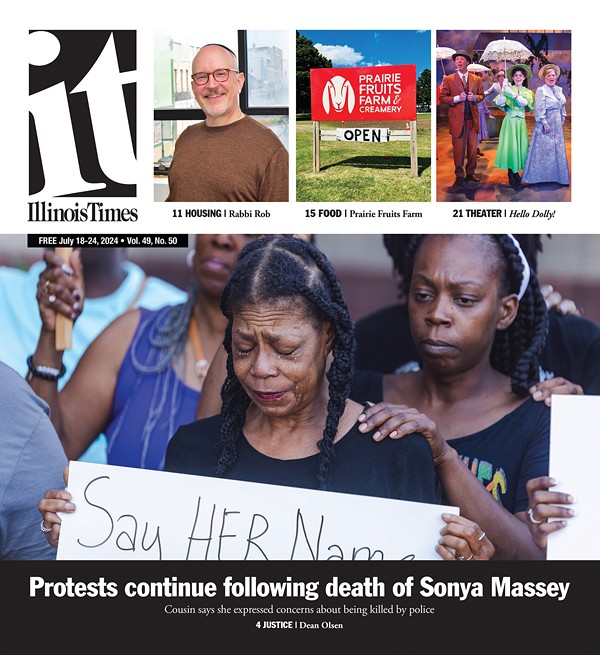A residency requirement for Springfield city government employees that first took effect in 1976, was abandoned in 2000 and then reinstated in 2017, could be suspended under a moratorium proposed by Mayor Misty Buscher and two alderpersons.
Supporters of the measure say suspending enforcement of the requirement is needed – at least for a year – to fill job vacancies amid a dearth of qualified candidates and a lack of available housing in Springfield.
Moratorium supporters say hiring challenges have been seen across the country because of employment trends related to the COVID-19 pandemic, retirements by members of the baby boom generation and high home mortgage interest rates.
Opponents say they fear the moratorium, scheduled to be voted on as an ordinance Nov. 7, will become permanent and lead to a reduction in the city's property tax base and loss of community pride. They say municipal policies should be tweaked and specialized recruiting strategies deployed before a blanket moratorium is put in place.
"I'm very concerned that this ordinance, as written, would open the barn door, and we would never be able to close it again," former Ward 7 Ald. Joe McMenamin, a longtime supporter of the residency requirement, told the Springfield City Council at its Oct. 24 committee-of-the-whole meeting.
The same day that McMenamin addressed the council, state Sen. Doris Turner, D-Springfield, a former Ward 3 alderperson, introduced a bill in the General Assembly that would ban Illinois municipalities from adopting moratoriums on residency requirements. The legislation also would undo any existing moratoriums.
It's unclear whether Turner, who voted in favor of Springfield's current residency requirement while on the City Council, introduced the bill to address the proposed ordinance.
Senate Bill 2622 hasn't been voted on in the General Assembly yet. Turner didn't return phone calls from Illinois Times.
Buscher, the former city treasurer who began her four-year term in May, told Illinois Times she doesn't want to do away with the residency requirement and appreciates the arguments in favor of it.
"We have all these open positions," Buscher said. "If we had a line of Springfield residents that walked in and we could interview and hire, this would not be coming up. I'm not saying, 'Get rid of residency.' ... This is a moratorium."
There's no expiration date for the moratorium as proposed, but Buscher said, "I would assume that it would at least last probably 12 months."
The mayor said it's unknown when the city's hiring challenges might ease. The city needs to expand its potential pool of applicants for everything from public works employees to electrical linemen at City Water, Light & Power, she said.
As of fall 2022, city records indicated 31% of Springfield's 1,300-plus employees lived outside city limits. However, the estimate may be low since some people with a Springfield address may actually reside in communities adjacent to or surrounded by Springfield, including the villages of Jerome, Grandview, Leland Grove and Southern View.
At least 35% of Springfield police officers and 47% of firefighters lived outside the city as of fall 2022. The firefighters' union contract didn't require them to live in Springfield until Jan. 1, 2019, and the requirement applies only to new hires.
Statistics for 2023 weren't immediately available.
The current residency rule says all city employees, except police officers whose union contract exempts them, must live within city limits unless they moved outside when the residency rule wasn't in effect and were allowed to stay because of "grandfather" provisions in city code.
Any new hires who don't live within city limits when they begin work have 12 months to move in, or 18 months if department directors give their blessing. Longer-term or permanent waivers can be granted for specific employees through a vote of the City Council.
McMenamin said he would rather the city give newly hired workers a longer grace period to move into Springfield than exempt them from the requirement entirely.
He noted that the proposed moratorium would allow city workers currently living in Springfield to move outside without penalty.
The council would have to decide whether new hires living outside the city, or city residents who moved outside during the moratorium period, would be allowed to continue working for the city if the moratorium were lifted and they continued to live outside Springfield.
Buscher said she would favor allowing people affected by the moratorium to continue to live outside the city if the council reactivated the rule.
Springfield first enacted a residency requirement in 1976, when about 6% of city employees lived outside the city and the city had the commission form of government, McMenamin said.
The City Council, by a 6-4 vote during the administration of former mayor Karen Hasara, did away with the requirement in 2000. Within four years, 20% of employees lived outside Springfield, McMenamin said.
By 2009, the nonresident figure was 30%, he said.
An advisory referendum on the topic in 2012 showed Springfield voters favored a residency requirement 59% to 41%. But the council didn't reinstate the requirement until 2016, when Jim Langfelder was mayor and campaigned in favor of the rule.
The requirement, which was opposed by some unions representing city workers, including police and firefighters, took effect in January 2017.
Among those voting in favor at that time were Turner, McMenamin and current Ward 9 Ald. Jim Donelan. Among those voting against were Ward 1 Ald. Chuck Redpath and Ward 10 Ald. Ralph Hanauer, both of whom joined Buscher in cosponsoring the proposed moratorium.
Since 2017, when the requirement took effect, the city has been successful in renegotiating labor contracts to require that all new hires – except those in the police department – are covered by the rule.
Based on Illinois Times interviews and discussion at the council's Oct. 24 meeting, the council's vote on the moratorium could be close. The mayor generally casts a vote only when the council is deadlocked 5-5.
Ward 2 Ald. Shawn Gregory said he "couldn't vote for anything like that. ... Anybody working for the city should live in the city and have pride in the city."
Drawing city employees from among city residents also helps promote racial diversity, he said, noting that nearby communities are almost all white, while Springfield's population is between 18% and 20% black. City government's workforce is 13.6% Black and more than 84% white, Buscher spokesperson Haley Wilson said.
McMenamin's successor, Ward 7 Ald. Brad Carlson, said he likes the idea of a moratorium.
"We want to hire the best and the brightest," he said. "Unless we get a big rush of applicants from the city of Springfield, I think we need to look beyond these arbitrary restrictions."
Redpath said: "The bottom line is we've got to get some people to come in and fill some gaps. We've got empty spots all over."
Ward 8 Ald. Erin Conley said, "I'm not real comfortable with telling people where they have to live. ... People aren't going to stop moving to Springfield to work here. This is a great place to live."
Ward 6 Ald. Jennifer Notariano said neither the mayor's office nor others involved in city hirings have "made the case for me" on the need for a moratorium. She said she has heard from constituents who are against a moratorium.
Ward 5 Ald. Lakeisha Purchase said she hasn't made up her mind on the issue, and her constituents have expressed mixed feelings.
Donelan said he is leaning toward voting for the moratorium to see whether temporarily lifting the residency requirement would ease the city's recruitment challenges.
Doug Brown, CWLP's chief utility engineer, said the pandemic exacerbated problems the utility had for years recruiting electric linemen, accountants, lawyers, information technology staff and other office workers.
Increases in salaries for state employees have made it even harder for CWLP to compete, he said.
The city's residency requirement, Brown said, is "just a restriction that reduces the number of candidates to fill positions," especially when candidates are experienced and can command top salaries from employers that don't care where someone lives.
McMenamin said relief from the requirement could be targeted to specific jobs or categories, when needed, "without wholesale abandonment of the city's economic self-interest."
Dean Olsen is a senior staff writer at Illinois Times. He can be reached at [email protected], 217-679-7810 or twitter.com/DeanOlsenIT.



















